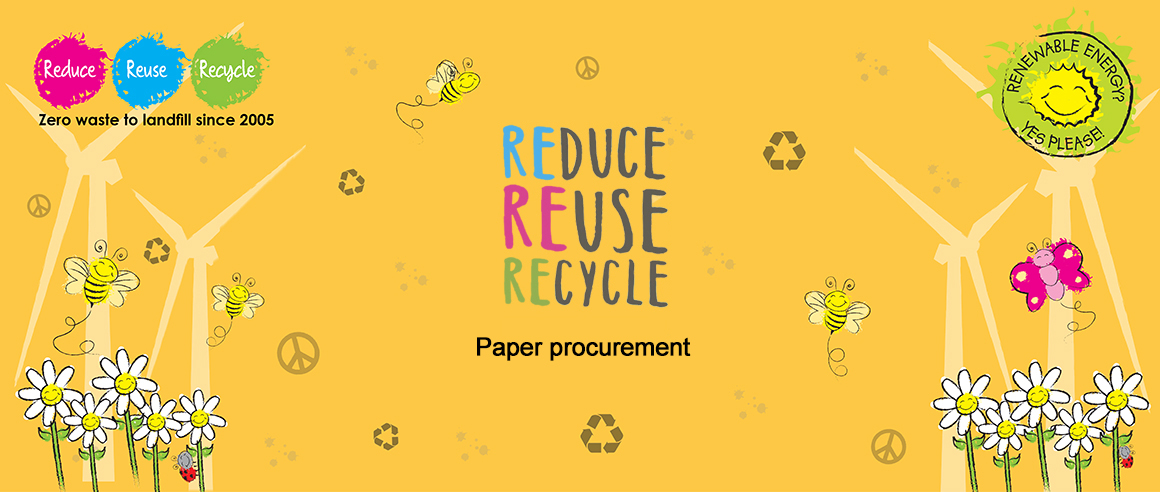Recycled Paper

Context
The paper cycle (the manufacture and recycling of paper, including geographical factors) is dynamic, shaped by market forces and is associated with manifold environmental concerns. As an additional complication, paper is a magnet for environmental opportunism.
There is no need to describe the complex issues and scenarios as these are circumvented by a policy of using only fully-recycled papers. The focus of this is how to ensure fully-recycled papers are used.
Factors to consider
The main issues to be aware of are the sources of the waste and use of the term ‘recycled’. The main concepts are pre-consumer waste and post-consumer waste but terminology relating to these concepts is not consistent and there’s long been an issue around “who is the consumer”? (The end-user of the finished product or an intermediate processor?)
The Forest Stewardship Council (FSC) ®, in recognition of the importance of recycling paper and (and timber), plays in protecting the world’s forests, introduced the FSC Recycled Label. This is the only scheme that brings clarity to the above issue by defining, from an environmental angle, the above concepts.
The FSC definition of post-consumer waste is: fibre that has been reclaimed from a product or after that product has been used for its intended purpose by individuals or businesses. Wood products carrying the FSC Recycled Label have been verified by a third-party certification body as containing a minimum of 70 per cent post-consumer reclaimed materials; the remaining percentage must be verified as pre-consumer waste.
Best procurement practice
- The most important first step is to request from the supplier appropriate information, considering the above factors, to allow an informed procurement decision. Specify an FSC-certified recycled material; use an FSC certified printing company and include the FSC Recycled logo on the printed product.
- Production scenarios where an FSC certified recycled paper is unavailable will be rare but in such a scenario the next best option may be to use a non-FSC recycled paper or an FSC certified virgin fibre paper.
Additional factors relevant to paper procurement
Paper mills make unbranded papers and do not engage directly with consumers. Paper merchants take on the role of branding, promoting and distributing papers to printing companies. Relationships are specific and no merchant has relationships with all mills and most printing companies have in place contracts with specific paper merchants. The product offering, therefore, is a reflection of commercial relationships and not exhaustive.